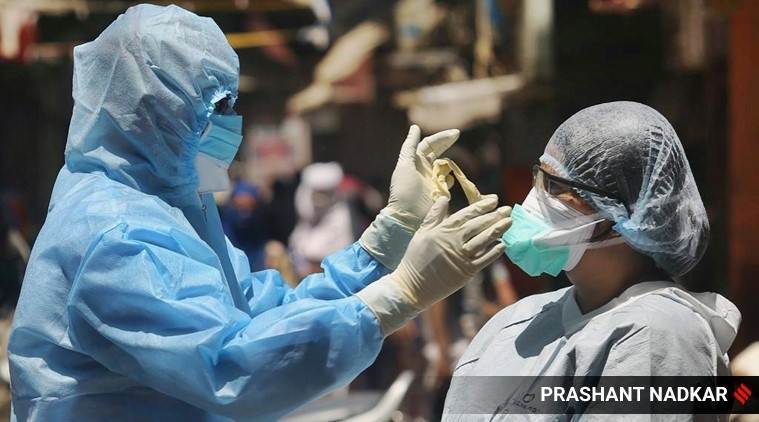 In Mumbai, Thyrocare tested 5,485 people, and found antibodies in 1,501 (27.3 per cent). Suburban Diagnostics lab tested 4,105 people and found 830 (20.2 per cent) had antibodies against coronavirus. (File)
In Mumbai, Thyrocare tested 5,485 people, and found antibodies in 1,501 (27.3 per cent). Suburban Diagnostics lab tested 4,105 people and found 830 (20.2 per cent) had antibodies against coronavirus. (File)
Data of 9,590 samples tested for antibodies in Mumbai’s two private laboratories showed that 24.3 per cent had antibodies against Covid-19. These samples, collected from the general population comprising office-goers, businessmen, salon staff and health workers, indicate that nearly one-fourth of the city’s population has already been exposed to coronavirus and generated antibodies against the infection.
Latest data also suggests Delhi is more exposed to coronavirus than Mumbai. Combined data of sero surveillance conducted by the National Centre for Disease Control (NCDC) and samples tested by Thyrocare show a 25.10 per cent positivity rate. The NCDC did an IgG antibody test on 21,387 people in 11 districts of Delhi and found around 5,022 positive (23.48 per cent). Private laboratory Thyrocare tested 3,956 people and found antibodies in 1,340 (33.8 per cent).
In Mumbai, Thyrocare tested 5,485 people, and found antibodies in 1,501 (27.3 per cent). Suburban Diagnostics lab tested 4,105 people and found 830 (20.2 per cent) had antibodies against coronavirus.
“This is good news. This shows a large number of people who were exposed to coronavirus had no symptoms and got immunity,” said Dr Sujata Baveja, head of microbiology in Sion hospital.
An IgG antibody test essentially detects whether a person has developed antibodies, and immunity therein, against an infection. It takes two weeks for a Covid patient to develop antibodies against the virus. This test is only used as a surveillance tool, and not for diagnosis, to assess the level of exposure. For diagnosis, RT-PCR (real time polymerase chain reaction) remains the gold standard. This test detects virus in swabs.
Mumbai’s positivity rate through RT-PCR test stands at 23.3 per cent, while the population that tested positive for antibodies is higher at 24.3 per cent. Experts said while this indicates high viral transmission, it also shows several more have been exposed to the virus but never developed symptoms and recovered.
“The antibody positivity rate shows a larger population has been infected and didn’t realise because no symptoms emerged,” said Dr Caesar Sen Gupta, head of operations in Thyrocare.
“The antibody tests that we did represents general population,” said Dr Anupa Dixit, chief microbiologist, Suburban Diagnostics.
Maharashtra health secretary Dr Pradeep Vyas said, “Since number of those getting exposed are much higher and RT-PCR testing is targeted for symptomatic and close contacts, antibody IgG positivity rate will always be higher than RT-PCR…With latest research findings showing immunity is lost in a few months, antibody positivity rate may not mean anything in the long run.”